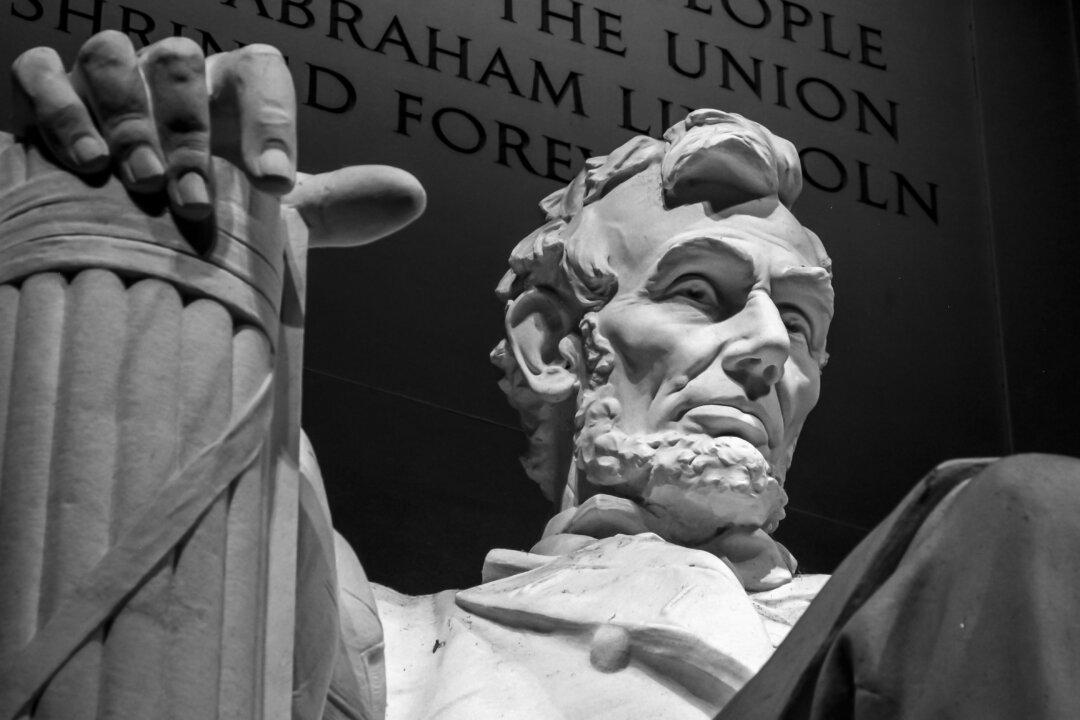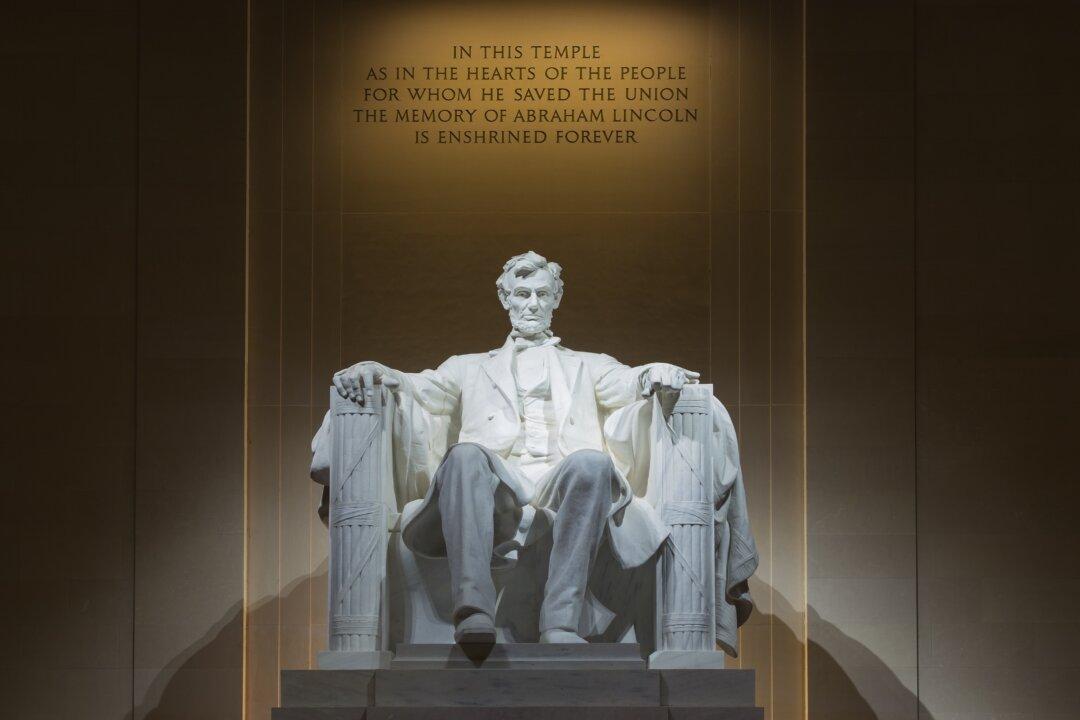Those Who Would Speak Must Bear Responsibilities
Neither let us be slandered from our duty by false accusations against us, nor frightened from it by menaces of destruction to the government nor of dungeons to ourselves.
—Address at Cooper Institute; February 27, 1860
I appeal to you again to constantly bear in mind that with you, and not with politicians, not with Presidents, not with office– seekers, but with you, is the question, “Shall the Union and shall the liberties of this country be preserved to the latest generation?”
—Speech at Indianapolis; February 11, 1861
It becomes my duty to make known to you—the people whom I propose to represent—my sentiments with regard to local affairs.
—Open letter to the People of Sangamo County; March 9, 1832
I may, therefore, have said something indiscreet, but I have said nothing but what I am willing to live by, and, in the pleasure of Almighty God, die by.
—Speech at Independence Hall; February 22, 1861
Fellow-citizens, I am not asserting anything; I am merely asking questions for you to consider.
—Speech at Indianapolis; February 12, 1861
It is with some hesitation I presume to address this letter and yet I wish not only you, but the whole Cabinet, and the President too, would consider the subject matter of it. My being among the people while you and they are not, will excuse the apparent presumption. It is understood that the President at first adopted, as a general rule, to throw the responsibility of the appointments upon the respective Departments; and that such rule is adhered to and practiced upon. This course I at first thought proper; and, of course, I am not now complaining of it. Still I am disappointed with the effect of it upon the public mind. It is fixing for the President the unjust and ruinous character of being a mere man of straw. This must be arrested, or it will damn us all inevitably.... The appointments need be no better than they have been, but the public must be brought to understand that they are the President’s appointments. He must occasionally say, or seem to say, “by the Eternal,” “I take the responsibility.” Those phrases were the “Samson’s locks” of Gen. Jackson, and we dare not disregard the lessons of experience.
—Letter to John M. Clayton; July 28, 1849
We know that there is not a perfect agreement of sentiment here on the public questions which might be rightfully considered in this convention, and that the indignation which we all must feel cannot be helped; but all of us must give up something for the good of the cause.
—Speech; May 29, 1856
I believe it is an established maxim in morals that he who makes an assertion without knowing whether it is true or false, is guilty of falsehood; and the accidental truth of the assertion, does not justify or excuse him.
—Letter to Allen N. Ford; August 11, 1846
Tips for a Worthy Wordsmith
When the conduct of men is designed to be influenced, persuasion, kind, unassuming persuasion, should ever be adopted. It is an old and a true maxim, that a “drop of honey catches more flies than a gallon of gall.”
—Speech to the Washington Temperance Society; February 22, 1842
Everyone likes a compliment. —Letter to Thurlow Weed; March 15, 1865
When a man bears himself somewhat misrepresented, it provokes him—at least, I find it so with myself; but when misrepresentation becomes very gross and palpable, it is more apt to amuse him.
—Reply to Stephen Douglas; August 21, 1858
If you would win a man to your cause, first convince him that you are his sincere friend. Therein is a drop of honey that catches his heart, which, say what he will, is the great highroad to his reason, and which, when once gained, you will find but little trouble in convincing his judgment of the justice of your cause, if indeed that cause really be a just one. On the contrary, assume to dictate to his judgment, or to command his action, or to mark him as one to be shunned and despised, and he will retreat within himself, close all the avenues to his head and his heart; and tho’ your cause be naked truth itself, transformed to the heaviest lance, harder than steel, and sharper than steel can be made, and tho’ you throw it with more than Herculean force and precision, you shall no more be able to pierce him, than to penetrate the hard shell of a tortoise with a rye straw. Such is man, and so must he be understood by those who would lead him, even to his own best interest.
—Speech to the Washington Temperance Society; February 22, 1842
Men are not flattered by being shown that there has been a difference of purpose between the Almighty and them.
—Letter to Thurlow Weed; March 15, 1865
Human action can be modified to some extent, but human nature cannot be changed.
—Address at Cooper Institute; February 27, 1860
But, fellow-citizens, I shall conclude ... upon the subjects of which I have treated, I have spoken as I thought. I may be wrong in regard to any or all of them; but holding it a sound maxim, that it is better to be only sometimes right, than at all times wrong, so soon as I discover my opinions to be erroneous, I shall be ready to renounce them.
—Open letter to the People of Sangamo County; March 9, 1832
I have endured a great deal of ridicule without much malice; and have received a great deal of kindness, not quite free from ridicule. I am used to it.
—Letter to James H. Hackett; November 2, 1863
I never encourage deceit, and falsehood, especially if you have got a bad memory, is the worst enemy a fellow can have. The fact is truth is your truest friend, no matter what the circumstances are. Notwithstanding this copy-book preamble, my boy, I am inclined to suggest a little prudence on your part.
—Letter to George E. Pickett; February 22, 1842
I do not feel justified to enter upon the broad field you present in regard to the political differences between radicals and conservatives. From time to time I have done and said what appeared to me proper to do and say. The public knows it all. It obliges nobody to follow me. The radicals and conservatives, each agree with me in some things, and disagree in others. I could wish both to agree with me in all things; for then they would agree with each other, and would be too strong for any foe from any quarter. They, however, choose to do otherwise, and I do not question their right. I too shall do what seems to be my duty.
—Letter to Charles D. Drake & Others; October 5, 1863
(To be continued...)




